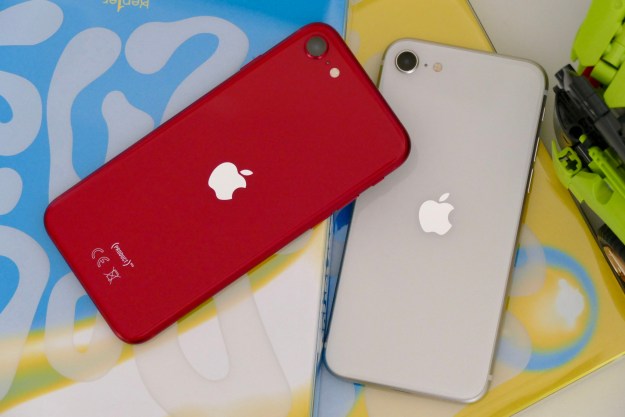
“On a functional level people have a much higher degree of distractibility, when it comes to digital technology,” explains Dr. David Greenfield, founder of the Center for Internet and Technology Addiction and Assistant Clinical Professor of Psychiatry at the University of Connecticut School of Medicine. “Whether those effects lead to long-lasting neurobiological changes we don’t know yet.”
Where’s the evidence?
The problem with theories of tech distraction is that there isn’t a great deal of evidence to back it up yet. One study commissioned by the British bank Lloyds TSB a few years back suggested the average attention span had fallen from 12 minutes in 1998 down to 5 minutes in 2008, but it was based on a survey of 1,000 people and didn’t specify what kind of attention it was talking about. Apparently the researchers got too distracted to think through their work.
17 percent of page views last less than 4 seconds, and only 4 percent go beyond 10 minutes.
Teachers certainly believe there has been an impact. A Common Sense Media study found that 71 percent of teachers believe students’ entertainment media use (TV, video games, texting, and social networking) has hurt their attention spans at least “somewhat.”
“Some say [Internet use] can actually enhance attention, but the enhancement is typically only relevant while you’re using it,” explained Dr. Greenfield. “When you turn the screen off and try to do things in real life, people can struggle with attention because they’re always being bombarded by stimuli and notifications that pull them away from the moment.”
It’s early days from a medical data point of view, too. “We really don’t have that many years of data,” says Dr. Greenfield, “It’s only over the next 10 to 15 years that we’re going to start seeing what kind of long term deleterious effects may come from chronic long-term digital media use.”
Is Googling replacing research?
According to Pew Research, 94 percent of the middle and high-school teachers surveyed suggested that students were very likely to use Google for research, and 75 percent would refer to Wikipedia. Textbooks scored just 18 percent and local libraries a bleak 16 percent.
What’s wrong with that, you may ask? Well, Dr. Ziming Liu of San Jose University wrote a paper on reading behavior in the digital environment and found that people tend to browse, scan, and skim more when they read online. They aren’t stopping to analyze or understand what they’re reading.
“Think about the way digital information is conveyed, as short bits of information,” said Dr. Greenfield. “The idea of working on something in-depth over a long period of time is falling out of favor, because people are Googling, reading the first sentence of whatever comes up and then they’re done. People are using the Internet this way because most of the time they find what they want. When you find what you want you get a slight hit in your pleasure neurotransmitter because you’re getting satisfied, and as long as you get that hit you’re going to be more likely to keep doing it. We’re reinforced by that positive experience.”
“A concern that we have,” said Dr. Greenfield, “is that if you’re not using some of these deeper capacities for thinking, because you’re using a digital device as a section of your brain, then those skill-sets will atrophy.”
You’re doing it wrong
There have been various studies showing that multitasking slows us down. It’s a case Professor Nass at Stanford University makes succinctly in The Myth of Multitasking on NPR. “People who multitask all the time can’t filter out irrelevancy. They can’t manage a working memory. They’re chronically distracted.”
Constantly vetting information is distracting and it requires your attention to filter the incoming noise.
“When you find what you want you get a slight hit in your pleasure neurotransmitter because you’re getting satisfied.”
When Dr. Greenfield talks about the smartphone he points out that “in some ways we’ve become Pavlovian dogs.” That incoming message alert triggers a strong impulse in us to check our smartphones. We’re excited at the possibility it may be something interesting, though it rarely is.
“One thing we do know about attentional capacity is that we have a limited bandwidth. If you take away from one end you’re going to lose it on the other,” Dr. Greenfield explains, “That’s why smartphones and driving are so deadly, because any attention you take away from the complex cognitive process reduces your ability to drive safely and effectively.”
What can we do?
If you’re concerned about the impact the Internet is having on your attention span, it’s easy to do something about it.
“The first thing you can do about it is turn off notifications, so your attention is not being pulled to the device all the time,” says Dr. Greenfield. “The next step is to turn it off and just check it when you need it. Don’t keep it on all the time, just check it at certain intervals throughout the day. With the exception of a few professions, most of us do not need to be contactable all the time.”
It may be a few years before we know the full impact of the digital world on our brains, but few would argue about the merits of tuning out digital distractions from time to time. We don’t have to give up the Internet or throw our smartphones away, but we’ll benefit from mixing it up with a book or taking a walk on the beach.
And if you read this far, pat yourself on the back. You may not have a problem at all.
Editors' Recommendations
- Android 15 has two hidden features you’re going to love
- If you can’t stand ads on Instagram, you’re going to hate this update
- Read this if you’re outraged about the FHD+ screen on the Galaxy S21
- Google Maps will now warn you about disasters and tell you how fast you’re going



